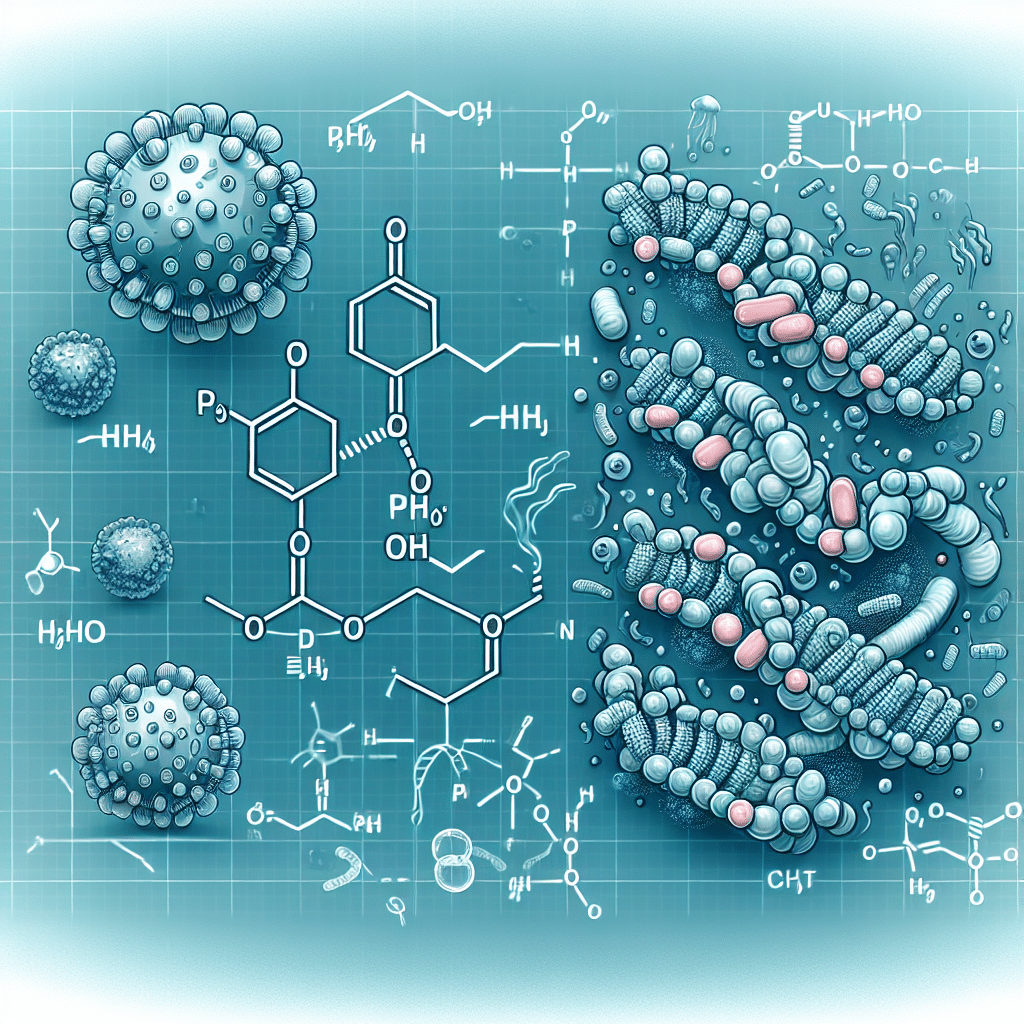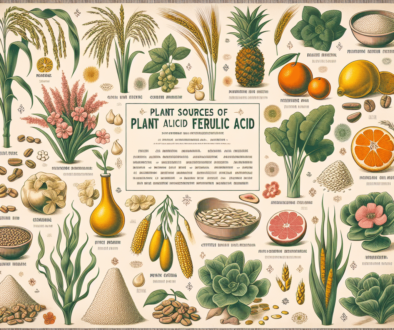Phloretin: Unveiling Its Antimicrobial Properties
-
Table of Contents
- Phloretin: Exploring Its Potent Antimicrobial Properties
- Understanding Phloretin and Its Sources
- The Antimicrobial Spectrum of Phloretin
- Investigating the Mechanisms Behind Phloretin’s Antimicrobial Action
- Case Studies and Research Findings
- Applications of Phloretin’s Antimicrobial Properties
- Challenges and Future Directions
- Conclusion: The Promising Future of Phloretin
- Discover ETprotein’s High-Quality Protein Products
Phloretin: Exploring Its Potent Antimicrobial Properties

Phloretin, a natural compound found in apples and other fruit, has garnered significant attention in the scientific community for its potential health benefits. Among its various biological activities, phloretin’s antimicrobial properties stand out as particularly promising for applications in medicine, food preservation, and skincare. This article delves into the research surrounding phloretin, highlighting its efficacy against a range of microbial threats and exploring the mechanisms behind its antimicrobial action.
Understanding Phloretin and Its Sources
Phloretin is a dihydrochalcone, a type of phenolic compound that is predominantly found in the leaves and fruit of apple trees. It is also present in smaller quantities in pears and some berries. As a secondary metabolite in plants, phloretin plays a role in defense against pathogens and contributes to the plant’s overall health.
The Antimicrobial Spectrum of Phloretin
Research has demonstrated that phloretin exhibits a broad spectrum of antimicrobial activity. It is effective against a variety of pathogens, including:
- Bacteria: Phloretin has been shown to inhibit the growth of both Gram-positive and Gram-negative bacteria, such as Staphylococcus aureus and Escherichia coli.
- Fungi: Phloretin can also combat fungal species, including Candida albicans, a common cause of yeast infections.
- Viruses: Some studies suggest that phloretin may interfere with viral replication, offering potential as an antiviral agent.
Investigating the Mechanisms Behind Phloretin’s Antimicrobial Action
The antimicrobial properties of phloretin can be attributed to several mechanisms:
- Disruption of Cell Membranes: Phloretin can integrate into microbial cell membranes, causing structural alterations that lead to cell death.
- Inhibition of Enzymatic Activity: Phloretin has been found to inhibit enzymes essential for microbial metabolism and survival.
- Interference with Nutrient Uptake: By affecting transport proteins, phloretin can prevent microbes from acquiring the nutrients they need to grow.
- Modulation of Gene Expression: Phloretin can influence the expression of genes related to virulence and resistance in microbes.
Case Studies and Research Findings
Several studies have highlighted the potential of phloretin as an antimicrobial agent:
- A study published in the “Journal of Agricultural and Food Chemistry” found that phloretin significantly reduced the growth of S. aureus, a common cause of foodborne illness and skin infections.
- Research in the “International Journal of Food Microbiology” demonstrated that phloretin could extend the shelf life of perishable foods by inhibiting the growth of spoilage microorganisms.
- A study in the “Antiviral Research” journal suggested that phloretin might be effective against influenza viruses, providing a basis for the development of new antiviral drugs.
Applications of Phloretin’s Antimicrobial Properties
The antimicrobial properties of phloretin have practical applications in various industries:
- Medicine: Phloretin could be used to develop new antibiotics or antifungal treatments, especially as resistance to existing drugs becomes a growing concern.
- Food Preservation: Incorporating phloretin into food packaging or as a natural preservative could help extend the shelf life of food products.
- Skincare: Due to its antimicrobial and anti-inflammatory properties, phloretin is a valuable ingredient in skincare products aimed at treating acne and other skin conditions.
Challenges and Future Directions
While phloretin’s antimicrobial potential is clear, there are challenges to its widespread adoption:
- Stability: Phloretin’s chemical stability can be affected by factors such as pH and temperature, which may limit its use in some applications.
- Solubility: The poor water solubility of phloretin can hinder its effectiveness and requires the development of novel delivery systems.
- Human Studies: Much of the research on phloretin’s antimicrobial effects has been conducted in vitro. Clinical trials are necessary to confirm its safety and efficacy in humans.
Future research should focus on overcoming these challenges and exploring the synergistic effects of phloretin with other antimicrobial agents.
Conclusion: The Promising Future of Phloretin
In conclusion, phloretin is a potent antimicrobial agent with a wide range of applications. Its ability to combat bacteria, fungi, and viruses makes it a valuable asset in the fight against infectious diseases and spoilage. As research progresses, we can expect to see phloretin playing an increasingly important role in medicine, food safety, and personal care products.
Discover ETprotein’s High-Quality Protein Products
In addition to exploring natural compounds like phloretin, it’s essential to consider the role of proteins in health and nutrition. ETprotein offers a diverse range of organic bulk vegan proteins and L-(+)-Ergothioneine (EGT) products suitable for various industries. Their high-quality protein products, characterized by neutral taste and non-GMO, allergen-free attributes, are ideal for nutraceutical, pharmaceutical, and food and beverage applications. To learn more about how ETprotein can meet your protein needs, contact them at sales(at)ETprotein.com.
About ETprotein:
ETprotein, a reputable protein and L-(+)-Ergothioneine (EGT) Chinese factory manufacturer and supplier, is renowned for producing, stocking, exporting, and delivering the highest quality organic bulk vegan proteins and L-(+)-Ergothioneine. They include Organic rice protein, clear rice protein, pea protein, clear pea protein, watermelon seed protein, pumpkin seed protein, sunflower seed protein, mung bean protein, peanut protein, and L-(+)-Ergothioneine EGT Pharmaceutical grade, L-(+)-Ergothioneine EGT food grade, L-(+)-Ergothioneine EGT cosmetic grade, L-(+)-Ergothioneine EGT reference grade and L-(+)-Ergothioneine EGT standard. Their offerings, characterized by a neutral taste, non-GMO, allergen-free attributes, with L-(+)-Ergothioneine purity over 98%, 99%, cater to a diverse range of industries. They serve nutraceutical, pharmaceutical, cosmeceutical, veterinary, as well as food and beverage finished product distributors, traders, and manufacturers across Europe, USA, Canada, Australia, Thailand, Japan, Korea, Brazil, and Chile, among others.
ETprotein specialization includes exporting and delivering tailor-made protein powder and finished nutritional supplements. Their extensive product range covers sectors like Food and Beverage, Sports Nutrition, Weight Management, Dietary Supplements, Health and Wellness Products, and Infant Formula, ensuring comprehensive solutions to meet all your protein needs.
As a trusted company by leading global food and beverage brands and Fortune 500 companies, ETprotein reinforces China’s reputation in the global arena. For more information or to sample their products, please contact them and email sales(at)ETprotein.com today.












